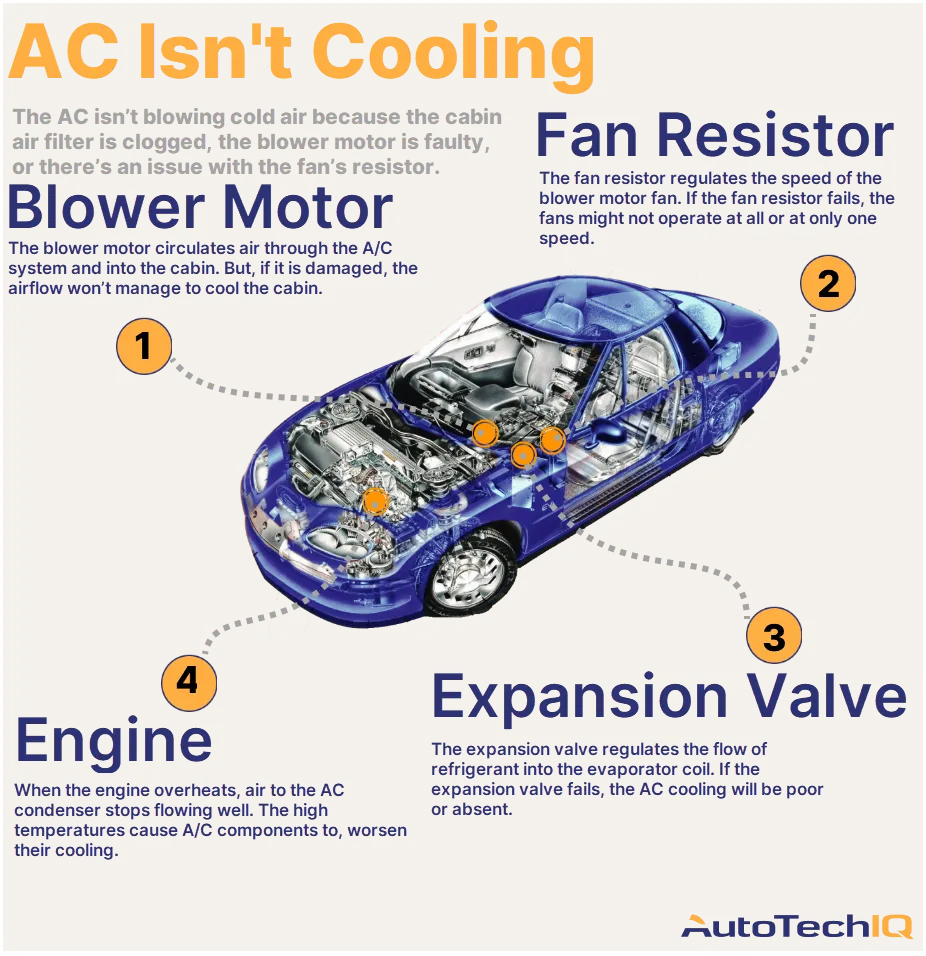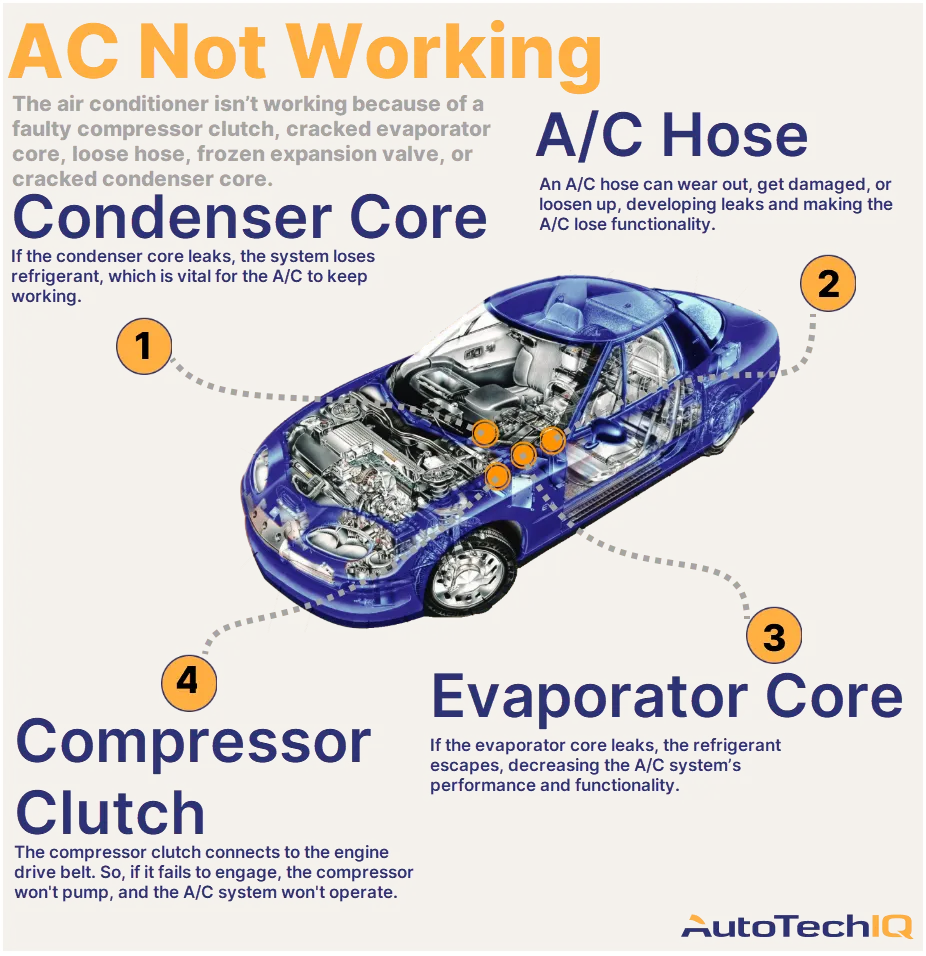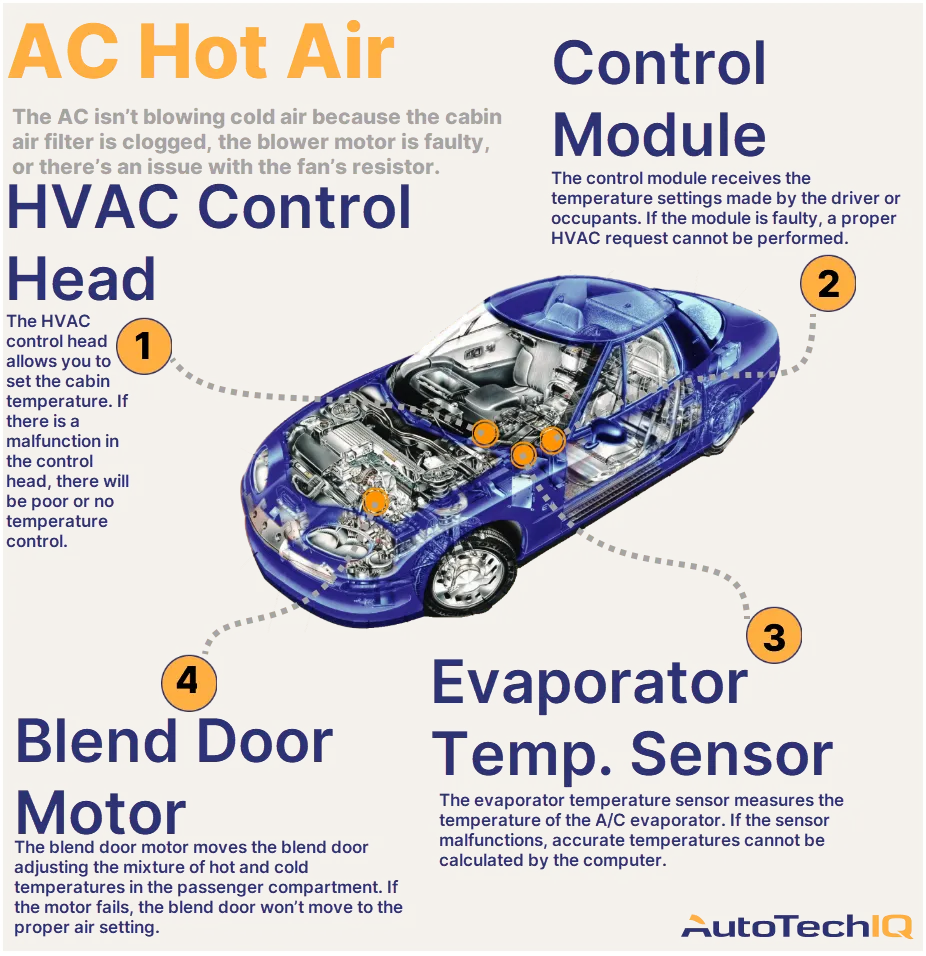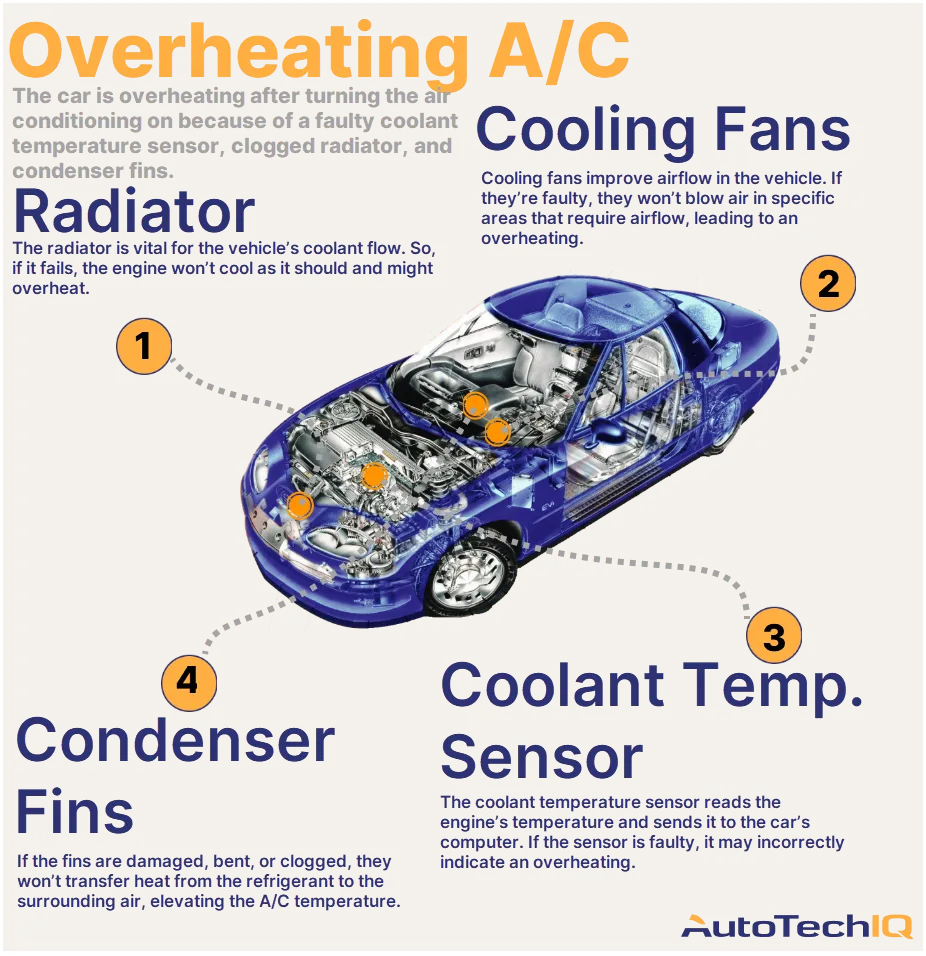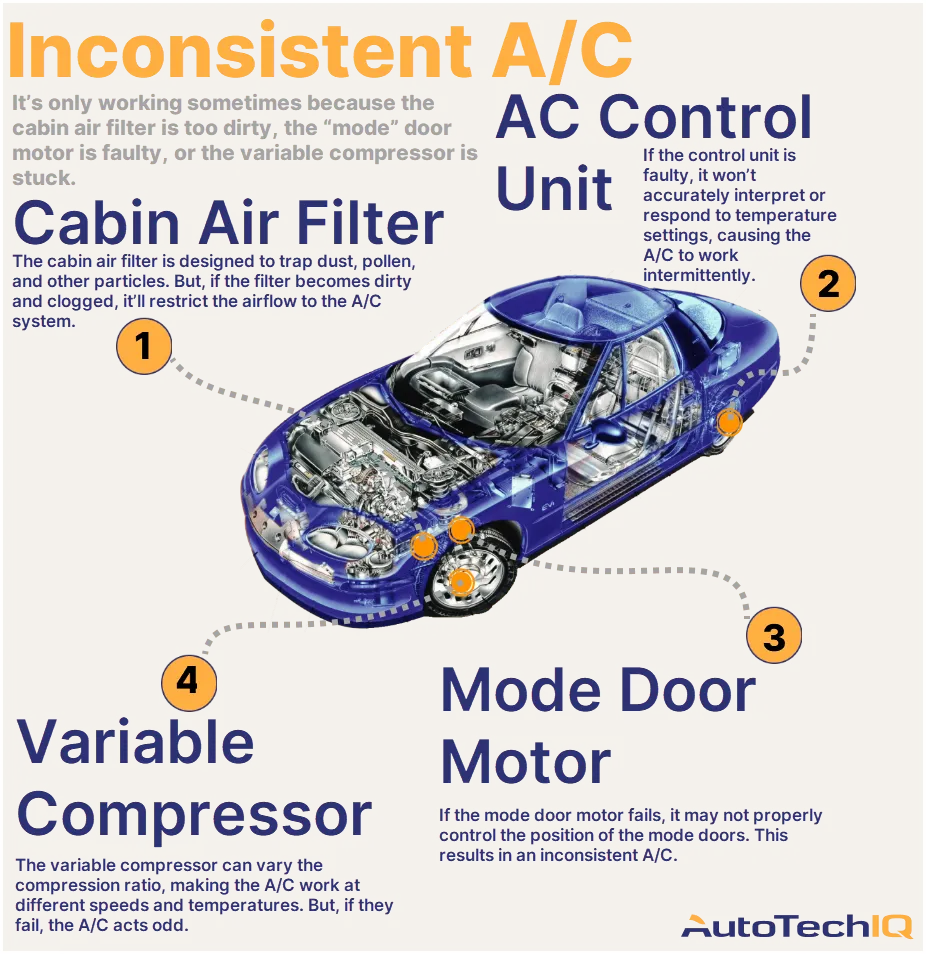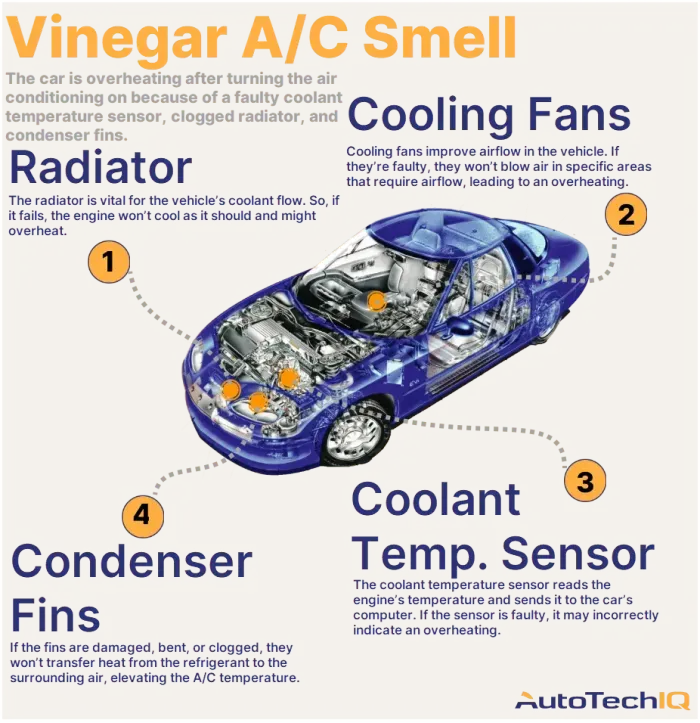
Does Your Car Smell Like Vinegar After You Turn The AC On?
The vinegar smell is probably due to moldy substances built up in the air conditioning system. This could be caused by a clogged air filter, moldy evaporator, or even something rotten inside the system. Alternatively, a food substance spilling in the vehicle or a sunroof leak could be culprits. More rarely, the smell could come from sulfated batteries releasing fumes; this is particularly noticeable when the AC is not in recirculation mode.
Watch out: Ensuring your vehicle's AC is blowing fresh air is essential for comfort. Remember, a small problem ignored today can become costly and dangerous tomorrow. So act now, and stay safe on the road!

